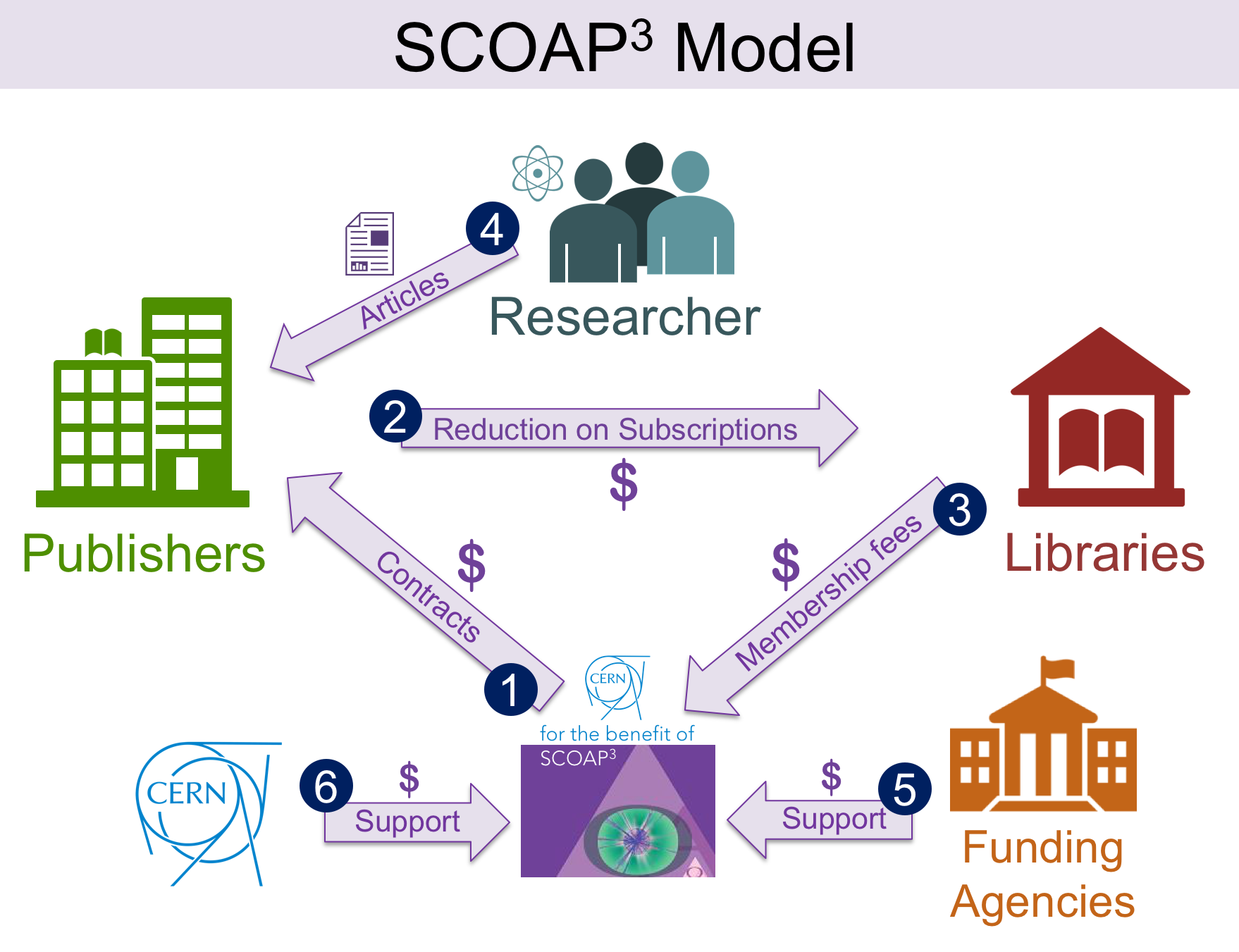Gigantic particle accelerators, incredibly complex detectors, an antimatter factory and the discovery of the Higgs boson – this is part of what makes CERN famous. Only a few know that CERN also hosts the world largest Open Access initiative: SCOAP3. The Sponsoring Consortium for Open Access Publishing in Particle Physics (SCOAP3) started operation in 2014 and has since supported the publication of 19,000 Open Access articles in the field of particle physics, at no direct cost, nor burden, for individual authors worldwide. SCOAP3 is made possible by a 3,000-institute strong partnership, where libraries re-direct funds previously used for subscriptions to ’flip’ articles to ’gold Open Access’. With its recent expansion, the initiative now covers about 90% of the journal literature of the field. This article describes the economic principles of SCOAP3, the collaborative approach of the partnership, and finally summarizes financial results after four years of successful operation.

